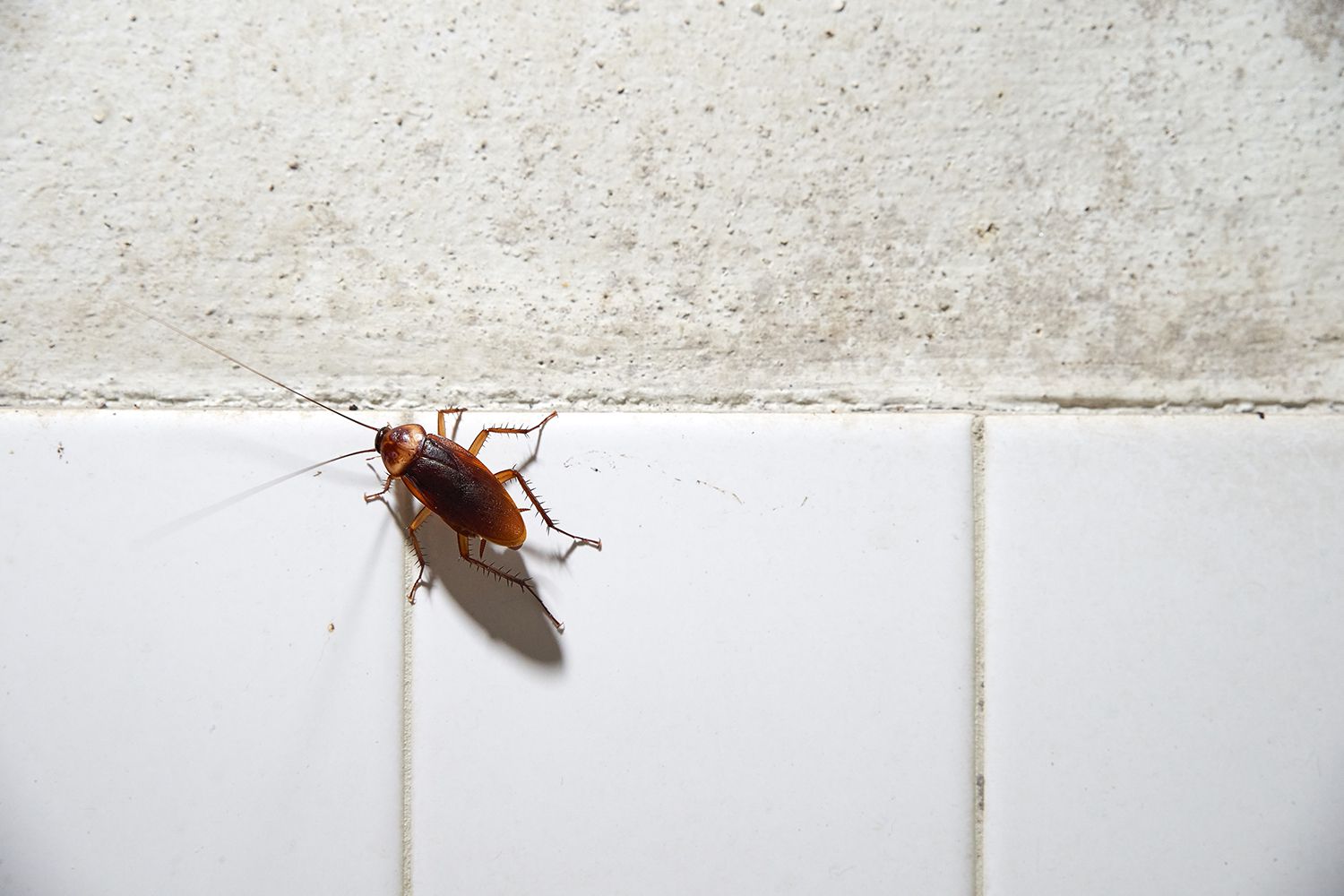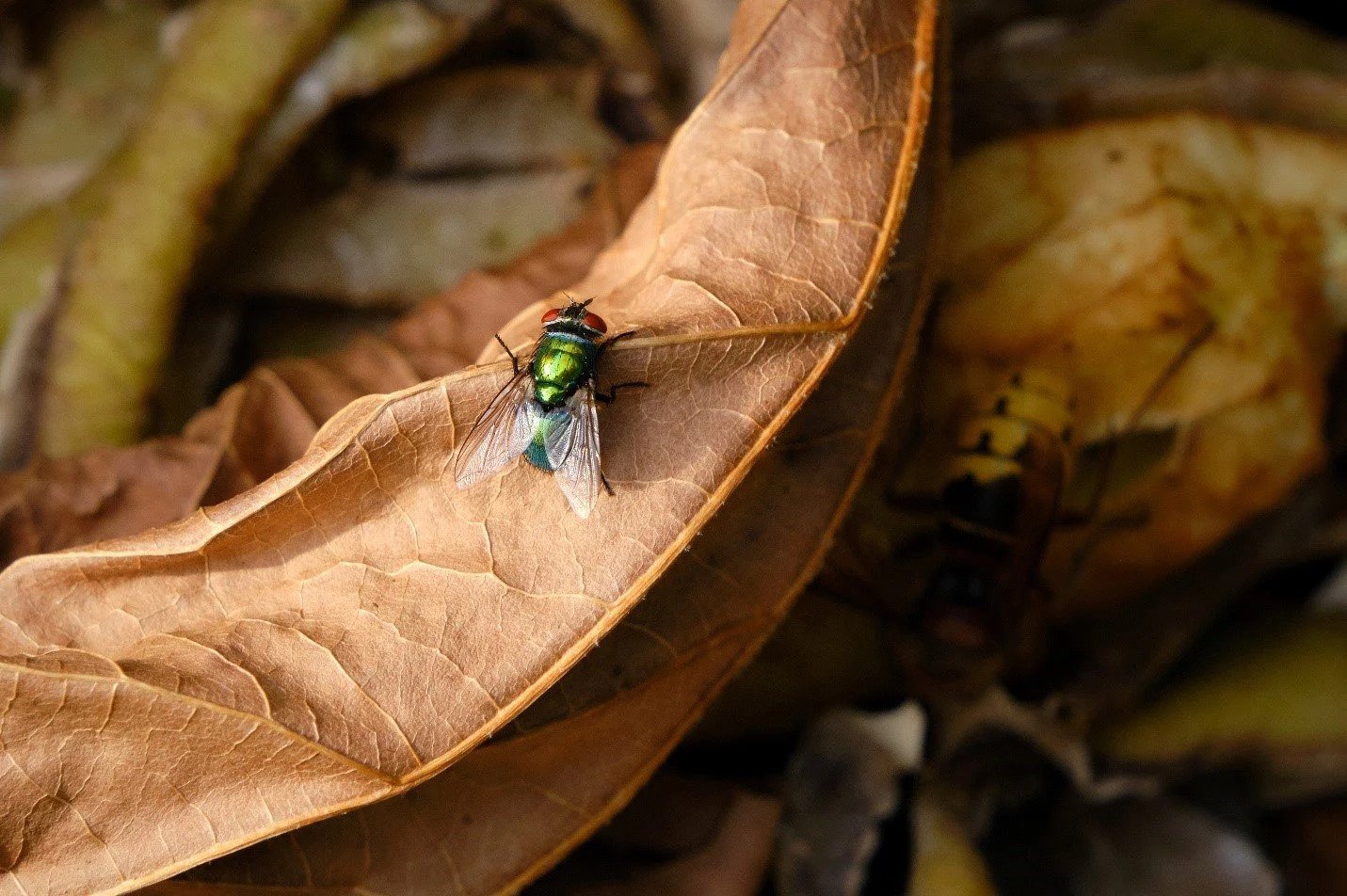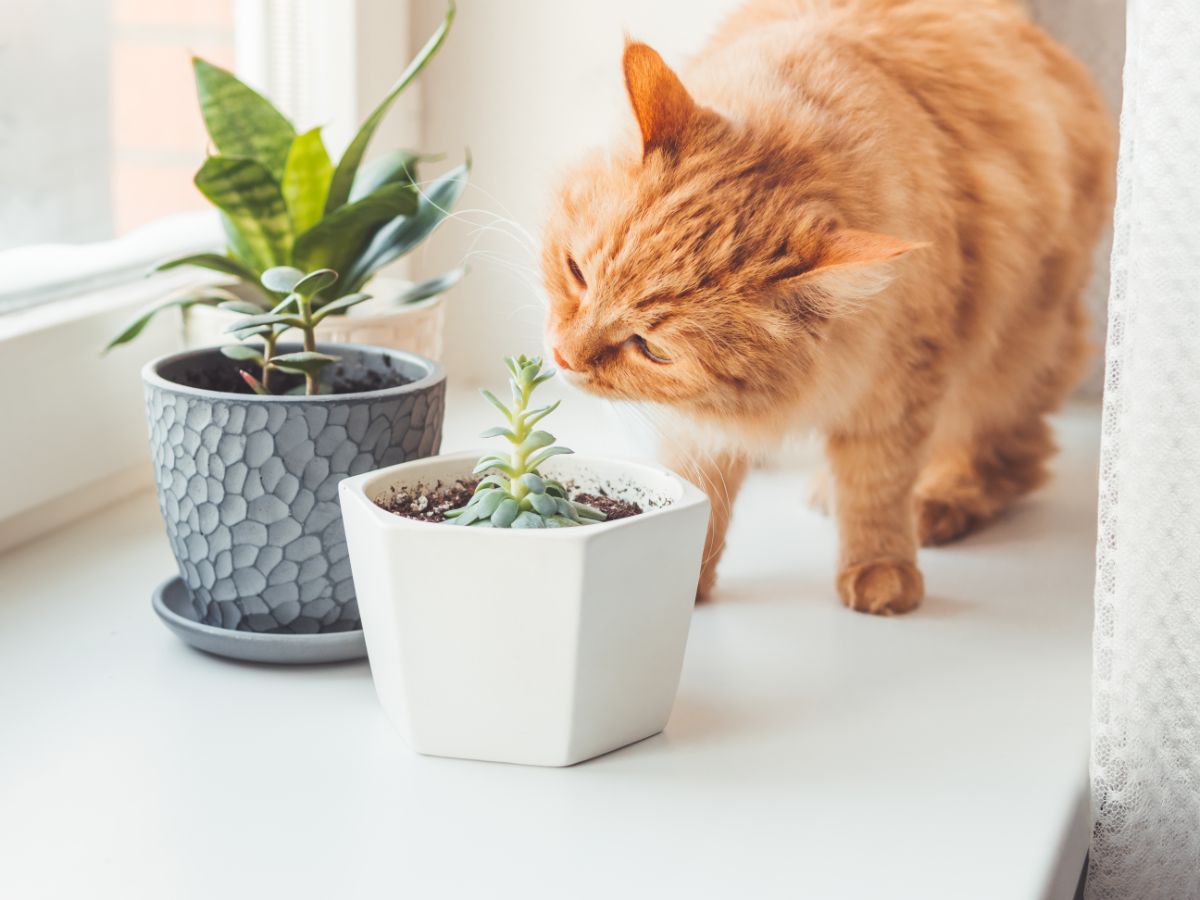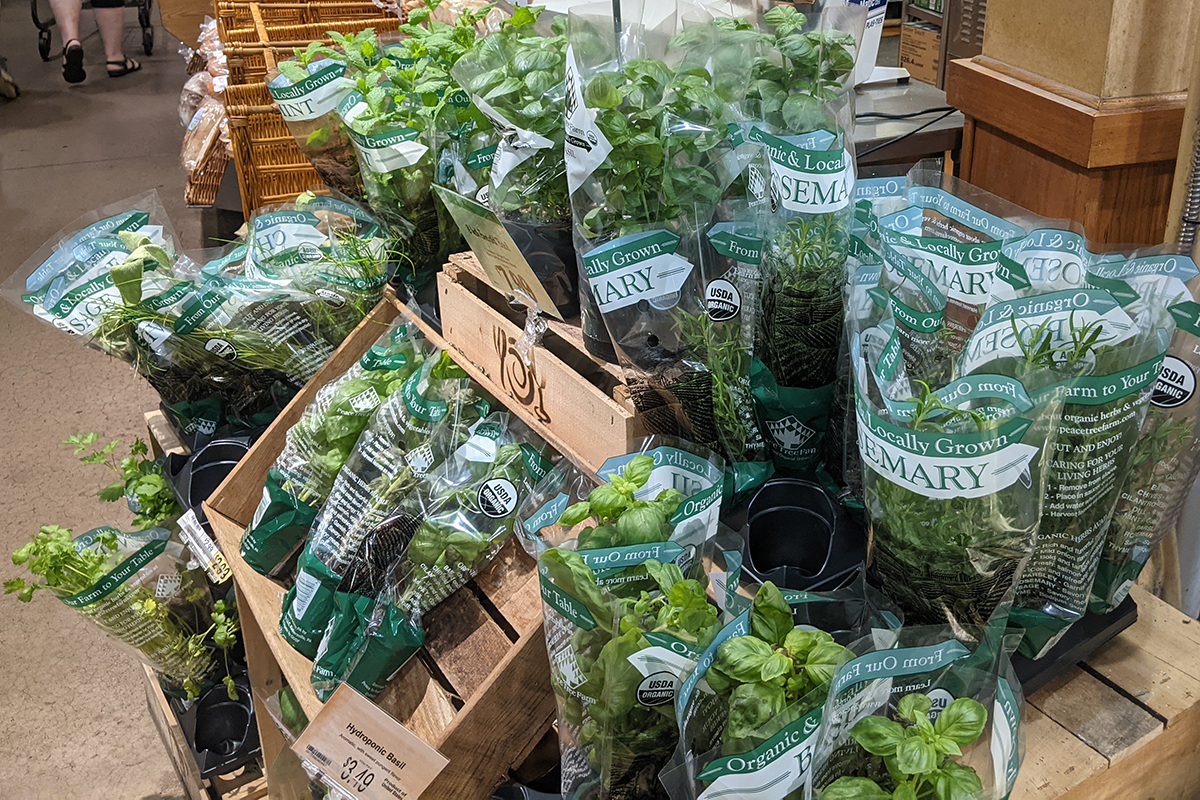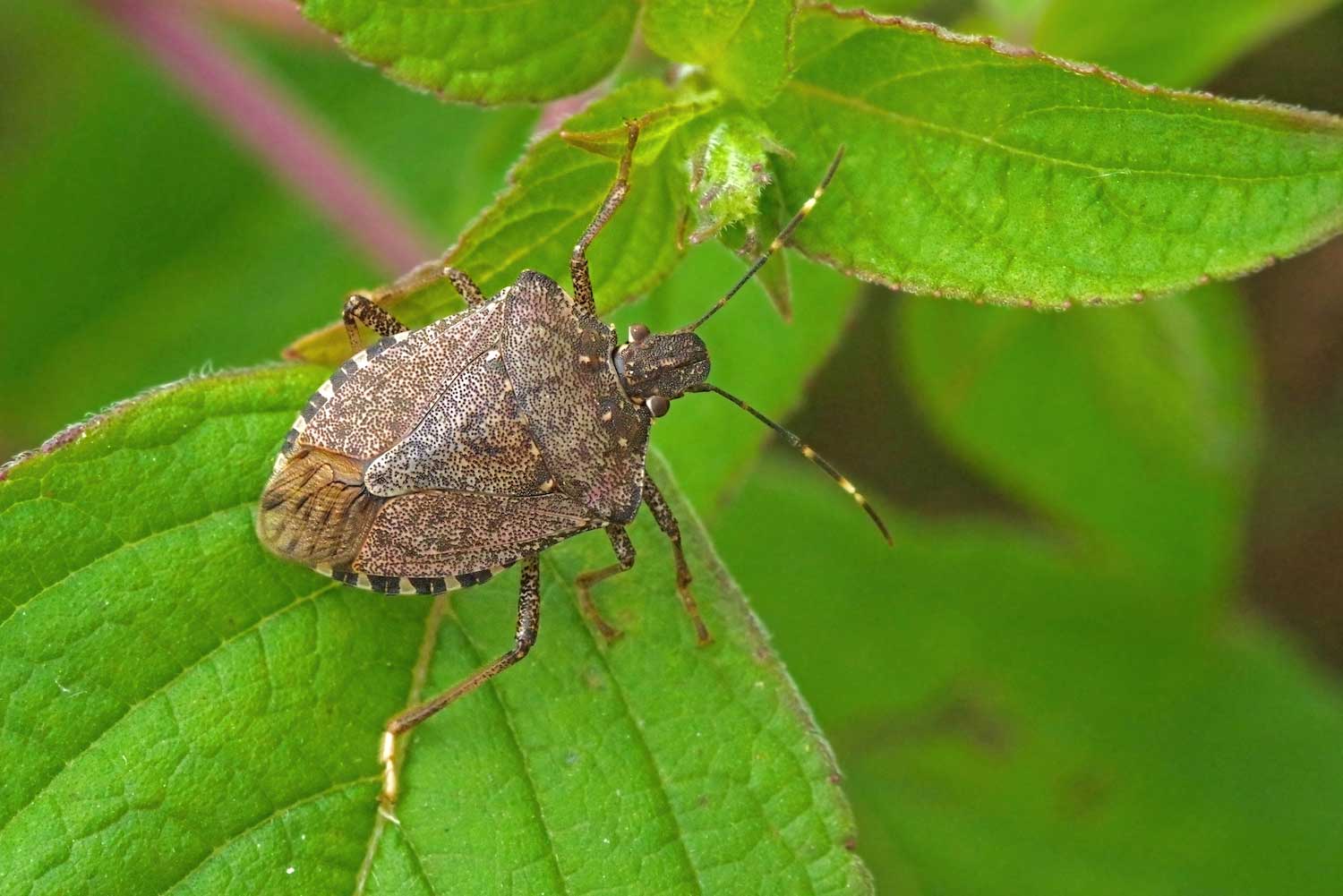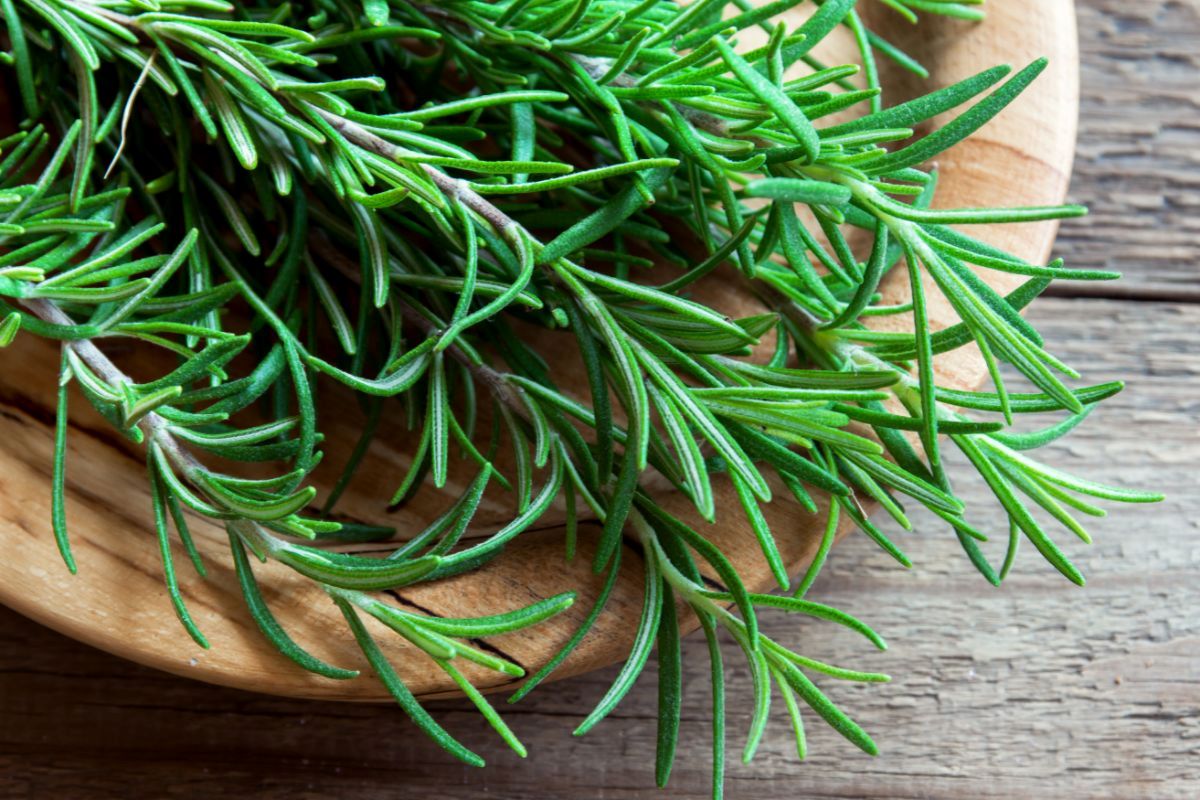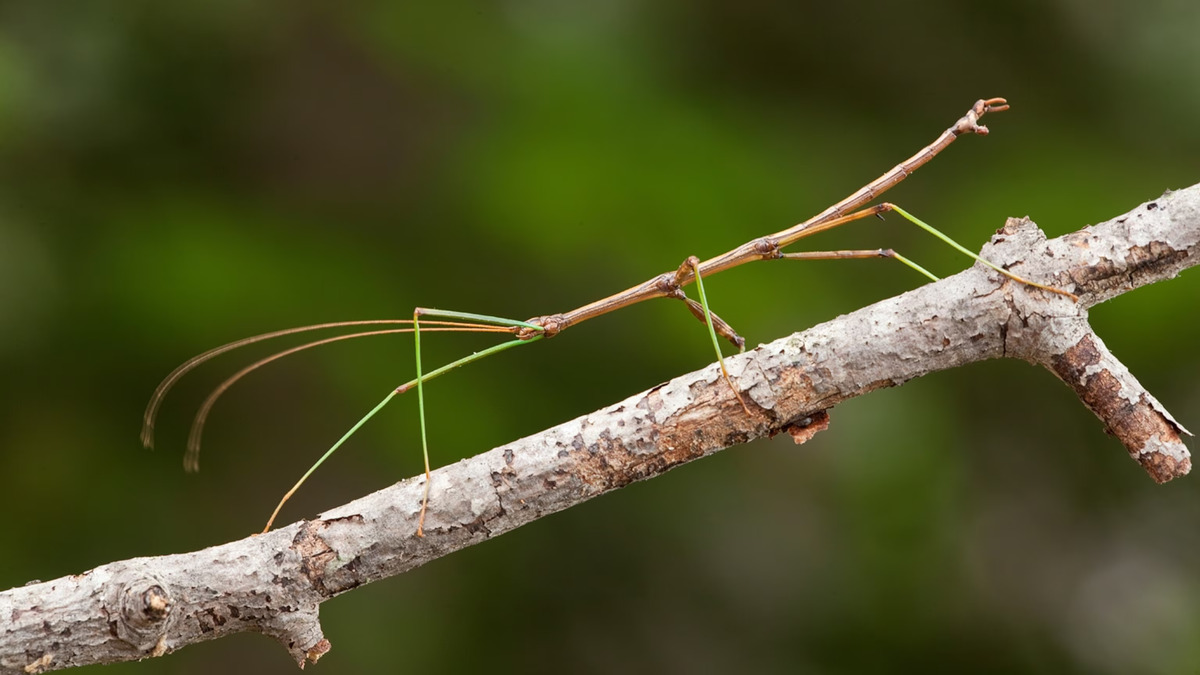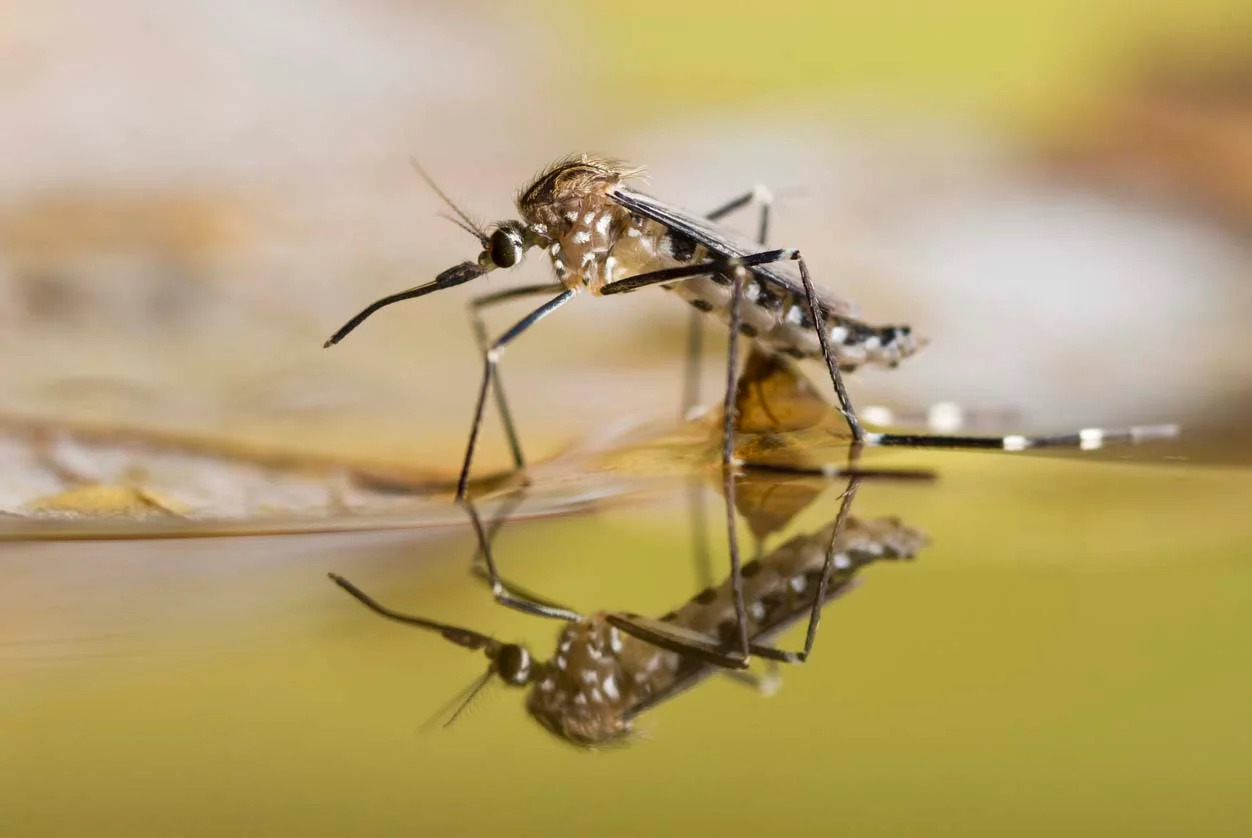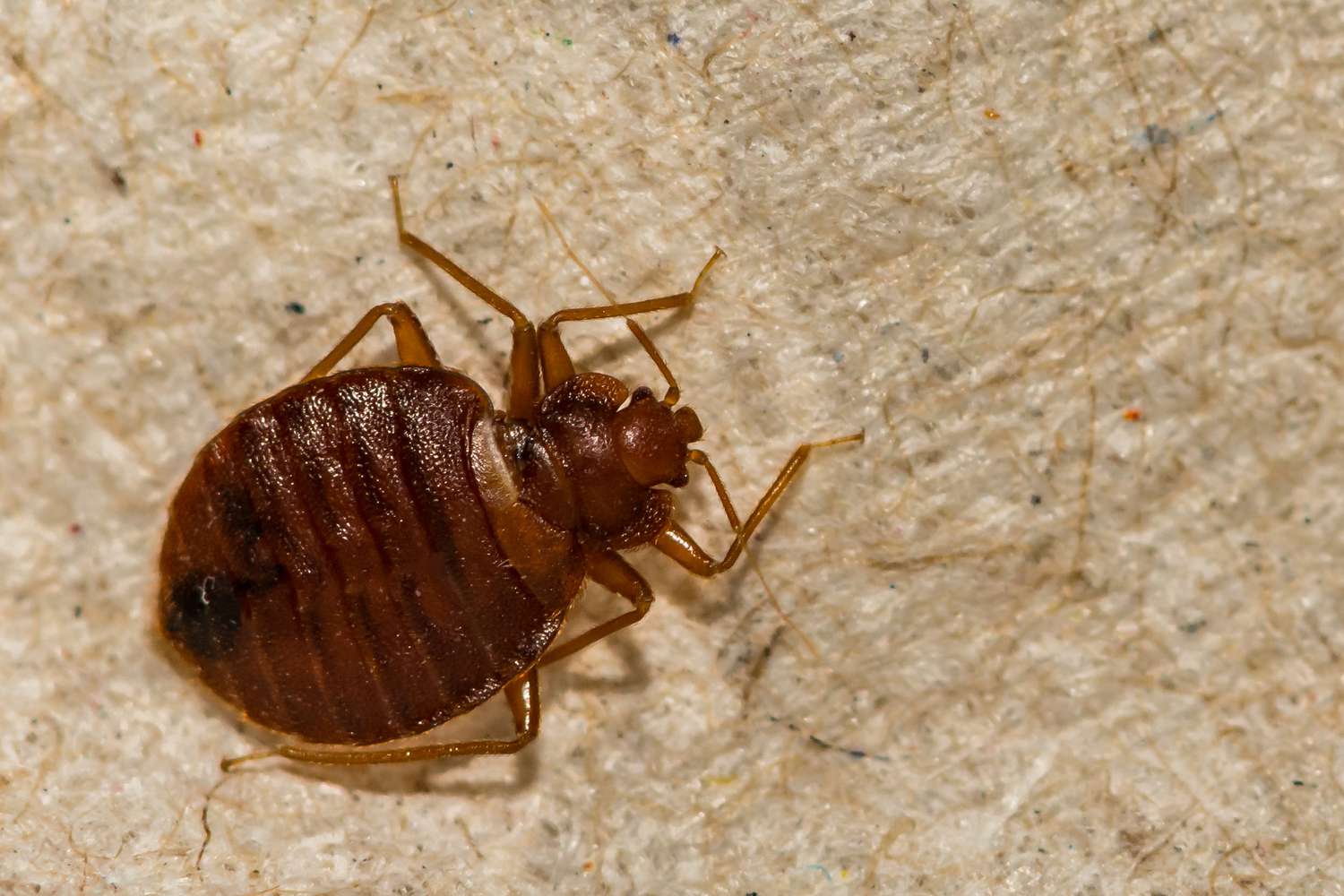Home>Gardening News and Trends>Gardening Trends>What Herbs Keep Bugs Away
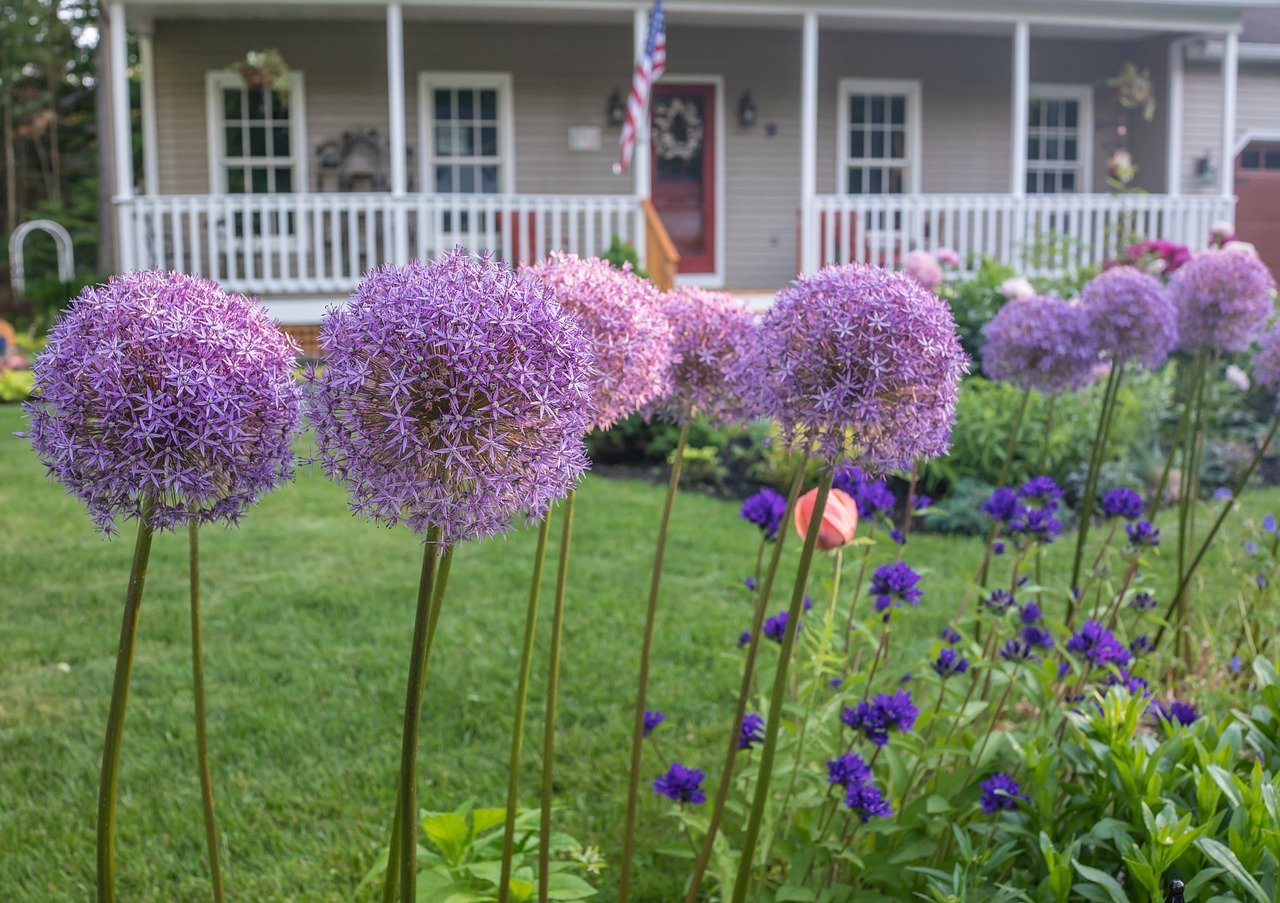

Gardening Trends
What Herbs Keep Bugs Away
Modified: January 22, 2024
Discover the latest gardening trends and learn which herbs keep bugs away. Create a bug-free oasis in your garden with these natural pest repellents.
(Many of the links in this article redirect to a specific reviewed product. Your purchase of these products through affiliate links helps to generate commission for Chicagolandgardening.com, at no extra cost. Learn more)
Table of Contents
Introduction
Gardening is a popular hobby that not only beautifies our surroundings but also provides us with fresh produce and a sense of fulfillment. However, one challenge that every gardener faces is the presence of bugs and pests that can damage plants and hinder their growth. Using chemical pesticides may not be the ideal solution, as they can be harmful to the environment and our health.
Fortunately, there is a natural and eco-friendly way to keep bugs away from our gardens – by using herbs! Certain herbs not only have culinary and medicinal uses but also possess properties that repel insects. By incorporating these herbs into our garden, we can fend off unwanted pests and create a healthier and more vibrant outdoor space.
In this article, we will explore a variety of herbs that are known for their bug-repelling qualities. From sage to citronella, we will delve into the benefits of each herb and how they can be used effectively in your garden. So, let’s discover the natural bug-fighting power of these incredible herbs!
Sage
Sage is a versatile herb known for its culinary uses and distinct flavor. However, it also has insect-repellent properties that make it a valuable addition to any garden. Sage contains compounds such as camphor, cineole, and thujone, which are known to repel various insects, including mosquitoes, ants, and flies.
To utilize the bug-repelling properties of sage, you can plant it in your garden or create a natural insect repellent spray. Simply steep fresh or dried sage leaves in boiling water, let it cool, and strain the liquid into a spray bottle. Spray this solution around your garden, focusing on areas where bugs tend to gather, such as near plants or sitting areas. Alternatively, you can rub fresh sage leaves directly on your skin to keep mosquitoes at bay.
Another benefit of having sage in your garden is that it attracts beneficial insects like bees and butterflies, which help with pollination. Additionally, sage is a hardy perennial herb, meaning it will continue to grow year after year, providing you with a sustainable and natural bug-repelling solution.
Sage is also commonly used as a companion plant to protect other plants from pests. It has been found to deter pests like cabbage moths and carrot flies when planted near susceptible crops. Consider planting sage near your vegetable garden or interspersing it among your flower beds to create a natural barrier against unwanted pests.
Lastly, sage can be dried and used in homemade potpourri or as a natural air freshener. Its aromatic scent not only adds a pleasant fragrance to your home but also helps repel insects, creating a bug-free and refreshing environment.
Lavender
Lavender is a beloved herb renowned for its soothing fragrance and calming properties. However, it also possesses natural bug-repellent qualities, making it a fantastic addition to any garden. The strong aroma of lavender is known to repel insects such as mosquitoes, flies, and moths.
One of the easiest ways to incorporate lavender into your garden is by planting it in pots or in flower beds. The vibrant purple flowers not only add beauty to your landscape but also act as a natural bug deterrent. Place lavender plants near windows or entrances to help keep flies and mosquitoes away from your home.
To maximize lavender’s bug-repellent effect, you can harvest the flowers and dry them to create sachets or bouquets. Hang these lavender bundles in areas that are prone to insect activity, such as near doorways or windows. The scent released by the dried flowers will naturally deter bugs and create a pleasant aroma in your home.
Lavender essential oil is another effective way to use this herb for bug control. Combine a few drops of lavender essential oil with a carrier oil, such as almond or jojoba, and apply it to your skin before heading outdoors. Not only will this help repel mosquitoes and other insects, but it will also leave you smelling fresh and fragrant.
In addition to repelling bugs, lavender also attracts beneficial insects like bees and butterflies. These pollinators play a crucial role in maintaining a healthy garden ecosystem. By planting lavender, you not only repel unwanted pests but also attract these important allies.
Furthermore, lavender has a calming effect on humans and can help promote relaxation and sleep. Consider planting lavender near outdoor seating areas or creating a soothing lavender-infused space in your garden for ultimate relaxation and bug protection.
Basil
Basil is a popular herb known for its culinary uses and aromatic qualities. However, it also possesses insect-repellent properties that make it a valuable addition to any garden. Basil plants contain natural compounds like eugenol and citronellol, which act as strong repellents for mosquitoes, flies, and other insects.
To utilize basil as a natural bug deterrent, you can plant it in your garden or even in pots on your patio or windowsill. Not only will this add a fresh and flavorful ingredient to your cooking, but it will also help keep bugs at bay. Place basil plants near doors or windows to prevent insects from entering your home.
Basil leaves can also be used as an effective natural insect repellent. By crushing a handful of fresh basil leaves and rubbing them on your skin, you can create a protective barrier against mosquitoes and other biting bugs. The strong scent and natural properties of basil act as a deterrent, allowing you to enjoy the outdoors without being bothered by insects.
Additionally, basil is known to attract beneficial insects such as bees and parasitic wasps, which aid in pollination and help control pest populations. By incorporating basil into your garden, you can create a harmonious balance between pest control and supporting a thriving ecosystem.
Basil can also be dried and used in homemade potpourri or insect-repelling sachets. By placing these sachets in your home or outdoor spaces, you can naturally deter insects and create a refreshing ambiance without relying on harmful chemicals.
Another useful tip is to interplant basil with other susceptible plants in your garden. The strong aroma of basil can confuse and deter pests that may have targeted those plants. Consider planting basil near tomato plants, for example, to protect them from common pests like aphids and whiteflies.
Overall, basil is not only a versatile and flavorful herb but also an effective natural deterrent against insects. With its numerous uses and benefits, adding basil to your garden is a smart and eco-friendly way to keep bugs away.
Lemongrass
Lemongrass, with its fresh and citrusy scent, is not just a flavorful culinary herb but also an excellent natural insect repellent. Its high content of citronella oil makes it particularly effective against mosquitoes and other flying insects. Lemongrass can be easily grown in gardens or in containers, and its bug-repellent properties make it a valuable addition to any outdoor space.
The strong aroma of lemongrass acts as a natural deterrent for bugs. To use lemongrass as an insect repellent, you can plant it in your garden as a border or in pots near seating areas and entrances. This will help create a barrier that keeps mosquitoes and flies away from your living spaces.
Another way to benefit from lemongrass’s bug-repelling properties is by extracting its essential oil. Steep a handful of lemongrass leaves in a carrier oil, such as coconut or olive oil, for a few weeks to create a homemade insect repellent. Apply a small amount to your skin before going outdoors to help ward off pesky bugs. This natural alternative is not only safer but also more environmentally friendly than commercial chemical-based repellents.
In addition to its insect-repellent quality, lemongrass also attracts beneficial insects such as bees and butterflies, which aid in pollination and create a thriving garden ecosystem.
Lemongrass can also be used in the form of citronella candles, which are commonly used to repel mosquitoes during outdoor gatherings. The essential oil derived from lemongrass is a key ingredient in many commercially available citronella candles, torches, and patio sprays. By burning lemongrass-scented candles or using citronella torches, you can create a pleasant outdoor ambiance while keeping bugs away.
Furthermore, lemongrass has a variety of culinary uses and health benefits. It is often used in Asian cuisine for its unique flavor and aroma. The infusion of lemongrass tea is known for its calming and soothing properties. By incorporating lemongrass into your garden, you not only repel insects but also have a versatile herb for culinary and wellness purposes.
Overall, lemongrass is a powerful natural insect repellent that can be easily grown in your garden. By harnessing its bug-deterring qualities, you can create a more enjoyable and peaceful outdoor environment.
Rosemary
Rosemary is an aromatic herb that is well-known for its culinary uses and distinct fragrance. However, it also possesses natural bug-repellent properties, making it a beneficial addition to any garden. Rosemary contains compounds such as camphor and rosmarinic acid, which act as effective repellents against mosquitoes, flies, and other insects.
One of the simplest ways to utilize rosemary as an insect deterrent is by planting it in your garden. The strong aroma emitted by the plant acts as a natural repellent, helping to keep bugs at bay. It is particularly effective in repelling mosquitoes when planted near seating areas or outdoor living spaces.
Another method is to create a DIY bug spray using rosemary. Simply boil a handful of rosemary sprigs in water for around 30 minutes, then let the mixture cool. Strain the liquid into a spray bottle and use it to spritz your skin or outdoor areas to repel insects. For added effectiveness, consider combining rosemary with other bug-repelling herbs like lavender or lemongrass.
Rosemary can also be used as a companion plant to protect other plants in your garden. Its strong scent can repel pests such as cabbage moths and carrot flies when planted near susceptible crops. Additionally, rosemary attracts beneficial insects like bees, which are crucial for pollination and maintaining a healthy garden ecosystem.
If you enjoy spending time outdoors during the evening, you can utilize rosemary by placing sprigs on your grill or fire pit. When the rosemary is heated, it releases a fragrant smoke that not only adds flavor to your food but also acts as a natural insect repellent.
In addition to repelling bugs, rosemary has various culinary uses and health benefits. It can be used to flavor a wide range of dishes, such as roasted meats, soups, and salads. Furthermore, rosemary has antioxidant properties and is rich in essential nutrients, making it a valuable herb for overall wellbeing.
Whether you plant it in your garden, create a bug spray, or use it in your cooking, rosemary is a versatile herb that provides natural pest control and numerous other benefits. By incorporating rosemary into your garden, you can enjoy its fragrant aroma while keeping insects away.
Peppermint
Peppermint is a refreshing herb known for its invigorating aroma and cooling properties. It is not only a popular flavor for candies and teas but also an excellent natural bug repellent. The strong and pleasant scent of peppermint helps to deter insects such as mosquitoes, ants, and spiders.
One of the easiest ways to utilize peppermint as an insect deterrent is by planting it in your garden. This fragrant herb can be grown in pots or directly in the ground. Planting peppermint near entrances and windows can help keep bugs from entering your home. Additionally, the plant’s dense foliage provides shelter for beneficial insects like bees and butterflies.
Peppermint essential oil is also a powerful bug repellent. Diluting a few drops of peppermint essential oil in water and spraying it around your garden or doorways can help discourage insects from entering your living spaces. Be sure to reapply the spray after rain or heavy watering to maintain its effectiveness.
Another way to use peppermint as an insect repellent is by creating homemade peppermint sachets or pouches. Dry peppermint leaves and place them in small fabric pouches, then strategically distribute these pouches in areas prone to pests, such as closets, pantries, or outdoor seating areas. Not only will the scent repel insects, but it will also provide a fresh and minty aroma.
Peppermint can also be used as a natural deterrent for rodents. The strong scent of peppermint oil is known to repel mice and rats. Soak cotton balls in peppermint oil and place them in areas where rodents may be a problem, such as attics, basements, or entry points to your home.
Additionally, peppermint is known for its cooling and soothing properties. You can make a peppermint-infused spray by steeping fresh peppermint leaves in boiling water, letting it cool, and then transferring it into a spray bottle. Spritzing this cooling mist on your skin can help provide relief from bug bites and soothe skin irritation.
Peppermint is a versatile herb with a wide range of uses and benefits. By incorporating peppermint into your garden and utilizing its bug-repellent properties, you can create a more enjoyable and comfortable environment while avoiding the use of harsh chemicals.
Thyme
Thyme is a fragrant herb commonly used in cooking for its distinct flavor. However, it also possesses insect-repellent properties that make it a useful addition to any garden. Thyme contains compounds such as thymol and carvacrol, which act as natural bug deterrents, particularly against mosquitoes, flies, and ants.
To take advantage of thyme’s bug-repellent qualities, you can plant it in your garden or in pots on your patio or balcony. The scent of thyme acts as a natural repellent, making it an effective way to keep insects away from your outdoor living spaces. Place pots of thyme near entryways or seating areas to create a barrier against unwanted bugs.
Thyme can also be utilized to make a homemade insect repellent spray. Steep a handful of fresh thyme sprigs in hot water for several minutes, then strain the liquid into a spray bottle. Spray this solution around your garden or in areas where insects are prevalent. This natural bug spray is safe for plants and humans, providing a chemical-free alternative for pest control.
Another benefit of thyme is its ability to attract beneficial insects to your garden. Beneficial insects, such as ladybugs and praying mantises, can help control populations of harmful pests. By planting thyme, you create a conducive environment for these beneficial insects, promoting a healthy and balanced ecosystem.
Thyme can also be used as a companion plant to protect vulnerable crops from pests. It has been found to repel cabbage worms and corn earworms when planted near susceptible vegetables like cabbage or corn. Interplanting thyme among your vegetable garden can act as a natural deterrent, reducing the need for harmful pesticides.
In addition to its bug-repellent properties, thyme has various culinary uses and health benefits. It is a versatile herb that can be used in a variety of dishes, such as soups, stews, and marinades. Thyme is also known for its antioxidant and anti-inflammatory properties, making it a valuable addition to a healthy diet.
By incorporating thyme into your garden and utilizing its natural bug-repellent qualities, you can create a thriving and pest-free outdoor space. Enjoy the benefits of this fragrant herb while keeping unwanted bugs at bay.
Catnip
Catnip, also known as Nepeta cataria, is a member of the mint family and is well-known for its effects on cats. However, it also possesses insect-repellent properties that make it a valuable addition to any garden. Catnip contains a compound called nepetalactone, which is a natural bug deterrent, particularly for mosquitoes, flies, and cockroaches.
To utilize catnip as an insect repellent, you can plant it in your garden or in pots around your outdoor living areas. The strong scent of catnip acts as a natural repellent, helping to keep insects at bay. Additionally, catnip plants can attract beneficial insects such as bees and butterflies, which are essential for pollination in the garden.
An effective way to use catnip as a bug repellent is to crush the leaves and rub them on your skin. The natural oils released from the crushed leaves act as a deterrent, helping to keep mosquitoes and other biting insects away. You can also dry catnip leaves and create sachets to hang in areas where insects tend to gather, such as near doorways or windows.
Another benefit of catnip is its ability to attract and stimulate cats. If you have feline friends, planting catnip in your garden can provide them with hours of enjoyment, as they roll in the plants and rub against them. This can also distract cats from other parts of your garden that you want to keep pest-free, such as areas with delicate flowers or vegetables.
Additionally, catnip has various medicinal uses and health benefits. It has been used for centuries as a natural remedy for digestive issues, insomnia, and anxiety in humans. Catnip tea, made by steeping dried catnip leaves in hot water, is known for its calming and soothing properties. However, it is important to note that catnip should not be consumed in large quantities by pregnant women or individuals with certain medical conditions.
By incorporating catnip into your garden, you can enjoy its bug-repellent properties while providing entertainment for your feline companions. This versatile herb is a natural and eco-friendly solution for keeping insects away, creating a more peaceful outdoor environment.
Citronella
Citronella, scientifically known as Cymbopogon nardus, is a popular herb renowned for its strong and citrusy aroma. It is widely used as an ingredient in candles, torches, and sprays to repel mosquitoes and other flying insects. Citronella contains natural compounds, such as citronellal and geraniol, which act as powerful insect deterrents.
One of the most common and effective uses of citronella is in the form of candles or torches. These products, infused with citronella oil, create a fragrant smoke that repels mosquitoes and other flying insects. Place citronella candles or torches near outdoor seating areas, patios, or picnic spots to create a bug-free zone.
Citronella essential oil can also be used to make a homemade insect repellent spray. Mix a few drops of citronella oil with water and a carrier oil such as coconut or almond oil, and then apply it to your skin or clothing before going outdoors. This natural bug spray provides protection from mosquitoes and other biting insects without the use of harmful chemicals.
In addition to its bug-repellent properties, citronella is a popular ingredient in outdoor incense sticks and diffusers. These products slowly release the scent of citronella, creating an invisible barrier against insects. Place citronella incense sticks or diffusers around your outdoor space to create a peaceful and bug-free environment.
Citronella plants can also be grown in your garden or in containers. Not only do they provide a natural mosquito repellent, but their vibrant and grassy appearance adds beauty to your outdoor space. Plant citronella near seating areas or outdoor living spaces to create a fragrant and bug-free environment to enjoy.
It is important to note that while citronella is effective in repelling mosquitoes, its effects might vary depending on factors such as wind and individual sensitivity. It is recommended to use citronella products in combination with other preventive measures, such as wearing long sleeves and using mosquito nets, especially in high mosquito activity areas.
Overall, citronella is a natural and popular choice for repelling insects. By incorporating citronella candles, sprays, or growing citronella plants in your garden, you can create an enjoyable outdoor experience while keeping mosquitoes and other flying insects away.
Conclusion
Incorporating insect-repellent herbs into your garden is a smart and eco-friendly way to keep bugs away while enjoying the beauty and benefits of a thriving garden. Sage, lavender, basil, lemongrass, rosemary, peppermint, thyme, catnip, and citronella are just a few examples of herbs that possess natural bug-repellent properties. These herbs not only add fragrance, flavor, and beauty to your outdoor spaces but also help create a pest-free environment.
By utilizing these herbs, you can reduce your dependency on chemical pesticides, which can have harmful effects on the environment and your health. Instead, you can harness the power of nature to naturally repel insects while also attracting beneficial insects for a balanced ecosystem.
Whether you choose to plant these herbs directly in your garden, create homemade bug sprays, use dried leaves in sachets and potpourri, or burn scented candles or incense sticks, you have a variety of options to incorporate these bug-repellent herbs into your daily life.
It is important to note that while these herbs have insect-repellent properties, their effectiveness might vary depending on factors such as local insect populations, weather conditions, and individual sensitivity. It is always a good idea to experiment and find the best methods that work for your specific garden and environment.
So, take advantage of these natural bug-fighting herbs and create a garden that is not only visually appealing but also free from annoying insects. Enjoy the benefits of a pest-free outdoor space while reaping the additional benefits of culinary uses, natural remedies, and a healthier ecosystem.
With a little planning and creativity, you can transform your garden into a peaceful sanctuary, where you can relax, entertain, and appreciate the beauty of nature, all without the nuisance of unwanted bugs.
